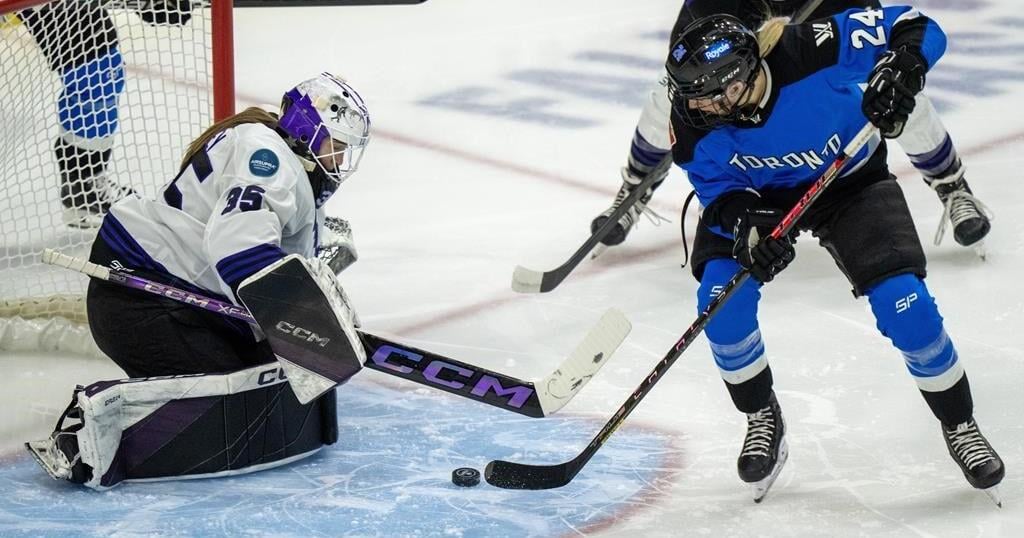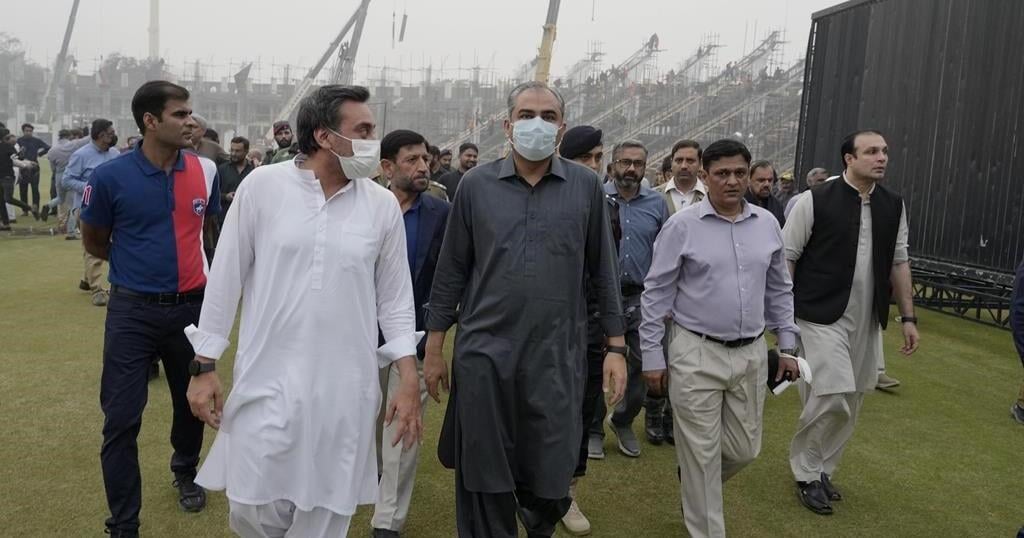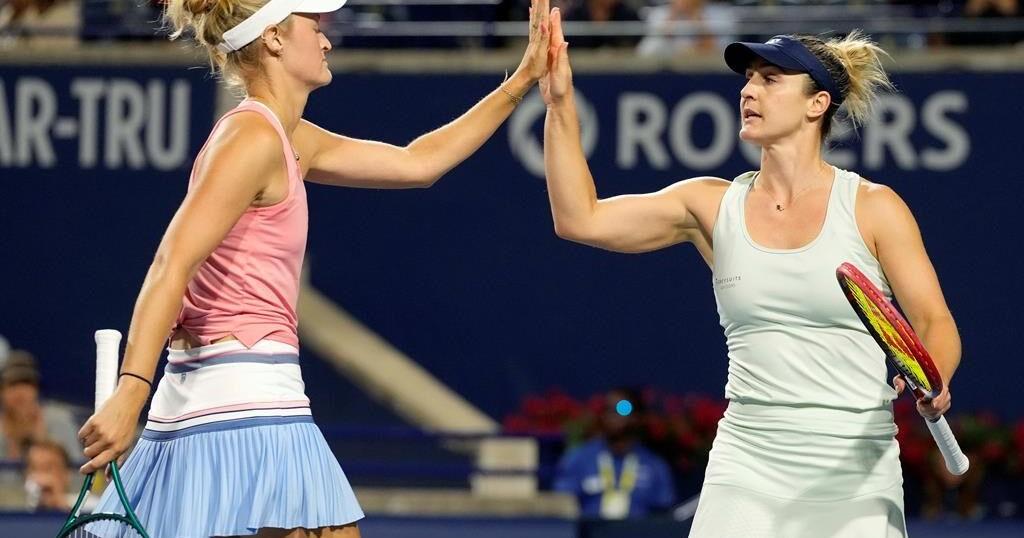Sportsnet Tonight
In year 17 of his NBA career, LeBron James is still peaking up to his prime
September 28 2020

Decades of NBA lore are built on rivalries — epic, titanic, ego-driven clashes that lend context, subtext and the weight of history to what are otherwise just games.
People pay for that stuff, and the league and its players have cashed in, with money spilling in so quickly that it can barely be counted, let alone spent.
It’s good versus evil; pride and prejudice, and pride going before the fall. It’s Celtics-Lakers; Bird-Magic; Michael vs. the Pistons, Shaq vs. Kobe, KD vs. the Warriors and LeBron over everyone.
Some of it is straight out of the Vince McMahon playbook: storylines that keep the plot twisting through never-ending winters until games that matter finally arrive, at which point the hype machine kicks it up another notch.
If there is a podcasting odd couple, this might be it. Donnovan Bennett and JD Bunkis don’t agree on much, but you’ll agree this is the best Toronto Raptors podcast going.
But some of it is real. Some of it is based on men of giant accomplishments and massive, never-satiated ambitions coming together and pulling apart like tectonic plates on ephedrine, the league’s foundations quaking along the way.
So yeah, the Miami Heat facing the Los Angeles Lakers has some juice to it.
This time it’s not an on-court rivalry that lends the final series of the NBA’s most unusual season its weight — though on paper the young, upstart Heat testing themselves against LeBron James and his insta-dynasty Lakers has all the ingredients to make it suitably delicious.
But what could make it memorable and a new plot point in the league’s decades-long drama is the way it pits two of sport’s most significant, preening, powerful, proud and successful figures against one another.
Heat president Pat Riley is 75 and his Goodfellas-inspired, slicked-back hair has long gone gray. But even in the bubble and wearing a mask, behind a glass partition, he has a presence. When current Heat star Jimmy Butler is looking for approval, he looks up into the stands, devoid of fans, for a post-game thumbs up from Riley. The Heat figurehead is the former Lakers role player turned coach turned executive turned living legend, the one who rode shotgun for Jerry West on the floor; earned Magic Johnson’s trust from the bench before pushing him too far and losing that war of wills after five championships.
Cast out from L.A., Riley perfected bully ball with the New York Knicks in the 90s, very nearly toppling Jordan in the process, before bolting for Miami, where he has somehow fused L.A. cool with New York edge, South Florida weather and no state income tax to create an NBA destination out of almost nothing.
It was Riley’s presence that attracted James after the kid from Akron was all grown up and looking to leave home. Riley plunked down a bag with the nine championships he’d won as a player, coach and executive and promised James he’d win a bunch more if they joined forces in Miami. James, without a title to show for seven years as a good soldier in Cleveland, followed the sun.
It was a perfect union – the world’s greatest player with the NBA’s most recognized superstar whisperer; the coolest, most gangster executive in the game with one more legend to pour his wisdom into. But after four Finals appearances and two championships, James was ready to graduate.
Pat Riley is Pat Riley because he’s his own man. He followed his basketball vision and in Miami created something in his image. “Heat Culture” is Riley: toughness, accountability, loyalty and no compromises.
Sportsnet Tonight
In year 17 of his NBA career, LeBron James is still peaking up to his prime
September 28 2020
But James took his lessons and wanted to improvise, play his own tune and win on his terms. When James left Miami to go back to Cleveland, he was following his own muse, looking to close his own circle and bring a championship back to the most un-Miami place in the league — taking what he learned and bringing it home.
Riley wasn’t having it. He wasn’t used to people saying “No” to him, let alone South Beach. For a moment he lost his cool. He lashed out.
“This stuff is hard. And you go to stay together, if you’ve got the guts,” he said after the Heatles had come up short against the San Antonio Spurs in 2014, triggering the break-up, and plenty of hard feelings. “And you don’t find the first door and run out of it.”
It was a ridiculous thing to say. All James was doing was taking his career into his own hands, launching himself on a trajectory few athletes in any sport have ever aspired to, let alone pulled off. James went back to Cleveland and completed one of the greatest stories in all of sports – bringing a title to his (adjacent) hometown after 52 years of being kicked around or forgotten by the coastal elites. He engineered a comeback from 3-1 against the Golden State Warriors, one of the greatest teams in NBA history. Along the way, James found his voice as a philanthropist and an activist — and proved that he didn’t need Pat Riley to be the primary figure in the NBA.
Riley couldn’t help but be chastened.
“I had two to three days of tremendous anger (after James left),” Riley told Ian Thomsen in 2018’s “The Soul of Basketball,” acknowledging that he hadn’t spoken with James since.
“I was absolutely livid, which I expressed to myself and my closest friends. My beautiful plan all of a sudden came crashing down. That team in 10 years could have won five or six championships.
“But I get it. I get the whole chronicle of (LeBron’s) life.
“While there may have been some carnage always left behind when he made these kinds of moves, in Cleveland and also in Miami, he did the right thing,” Riley told Thompson. “I just finally came to accept the realization that he and his family said, ‘You’ll never, ever be accepted back in your hometown if you don’t go back to try to win a title. Otherwise someday you’ll go back there and have the scarlet letter on your back. You’ll be the greatest player in the history of mankind, but back there, nobody’s really going to accept you.’”
In the moments before Game 7 in 2016, Riley reached out to James, via text: “Win this and be free.”
James never responded. He didn’t need Riley’s affirmation, but from the winner’s circle, he let on the vindication his third title provided.
“When I decided to leave Miami — I’m not going to name any names, I can’t do that — but there were some people that I trusted and built relationships with in those four years (who) told me I was making the biggest mistake of my career,” James told ESPN at the time.
“And that s— hurt me. And I know it was an emotional time that they told me that because I was leaving. They just told me it was the biggest mistake I was making in my career. And that right there was my motivation.”
Having paid his debt to Cleveland, James eventually set out to make one more bold move in a career defined by them, leaving to join the Lakers in the summer of 2018, all while making a masterful long play to recruit the greatest teammate of his career, Anthony Davis.
After a season in limbo, it has worked out perfectly. The Lakers have been the best team in the West all year and have looked stronger as the playoffs have gone on.
But while Riley may have begun to show his age in the decade since he brought James to Miami as the centrepiece of what he thought would be a dynasty that would challenge the Lakers’ historical hegemony, he hasn’t lost any of his edge.
Since James left, Riley has been rebuilding on the fly: adding, positioning, developing and drafting. This past off-season he pounced and found a new soulmate in Jimmy Butler to lead his hand-picked crew of young talent.
The Heat have grown before everyone’s eyes, including Riley’s, as he looks down approvingly from behind his mask.
Now one more test: will Riley’s new team, built in James’ wake, be able to hand James one more bitter Finals disappointment, a seventh loss — this time to his former mentor — obscuring his three championships?
Or will James have the last laugh, winning his fourth title with his third team and proving that Riley needed him more than the other way around?
There are legacies at stake, and history, and two of the NBA’s proudest, vainest and most successful characters are awaiting one more chapter to be written.
But only one of them is one the floor. Advantage, LeBron.

TORONTO – Reigning PWHL MVP and scoring champ Natalie Spooner will miss the start of the regular season for the Toronto Sceptres, general manager Gina Kingsbury announced Tuesday on the first day of training camp.
The 33-year-old Spooner had knee surgery on her left anterior cruciate ligament (ACL) after she was checked into the boards by Minnesota’s Grace Zumwinkle in Game 3 of their best-of-five semifinal series on May 13.
She had a goal and an assist in three playoff games but did not finish the series. Toronto was up 2-1 in the semifinal at that time and eventually fell 3-2 in the series.
Spooner led the PWHL with 27 points in 24 games. Her 20 goals, including five game-winners, were nine more than the closest skater.
Kingsbury said there is no timeline, as the team wants the Toronto native at 100 per cent, but added that “she is doing really well” in her recovery.
The Sceptres open the PWHL season on Nov. 30 when they host the Boston Fleet.
This report by The Canadian Press was first published Nov. 12, 2024.
The Canadian Press. All rights reserved.

LAHORE, Pakistan (AP) — A top official of the Pakistan Cricket Board declined Friday to confirm media reports that India has decided against playing any games in host Pakistan during next year’s Champions Trophy.
“My view is if there’s any problems, they (India) should tell us in writing,” PCB chairman Mohsin Naqvi told reporters in Lahore. “I’ll share that with the media as well as with the government as soon as I get such a letter.”
Indian media reported Friday that the Board of Control for Cricket in India (BCCI) has communicated its concerns to all the Champions Trophy stakeholders, including the PCB, over the Feb. 19-March 9 tournament and would not play in arch-rival Pakistan.
The Times of India said that “Dubai is a strong candidate to host the fixtures involving the Men in Blue” for the 50-over tournament.
Such a solution would see Pakistan having to travel to a neutral venue to play India in a group match, with another potential meeting later in the tournament if both teams advanced from their group. The final is scheduled for March 9 in Pakistan with the specific venue not yet decided.
“Our stance is clear,” Naqvi said. “They need to give us in writing any objections they may have. Until now, no discussion of the hybrid model has happened, nor are we prepared to accept one.”
Pakistan hosted last year’s Asia Cup but all India games were played in Sri Lanka under a hybrid model for the tournament. Only months later Pakistan did travel to India for the 50-over World Cup.
Political tensions have stopped bilateral cricket between the two nations since 2008 and they have competed in only multi-nation tournaments, including ICC World Cups.
“Cricket should be free of politics,” Naqvi said. “Any sport should not be entangled with politics. Our preparations for the Champions Trophy will continue unabated, and this will be a successful event.”
The PCB has already spent millions of dollars on the upgrade of stadiums in Karachi, Lahore and Rawalpindi which are due to host 15 Champions Trophy games. Naqvi hoped all the three stadiums will be ready over the next two months.
“Almost every country wants the Champions Trophy to be played here (in Pakistan),” Naqvi said. “I don’t think anyone should make this a political matter, and I don’t expect they will. I expect the tournament will be held at the home of the official hosts.”
Eight countries – Pakistan, India, Bangladesh, England, Australia, South Africa, New Zealand and Afghanistan – are due to compete in the tournament, the schedule of which is yet to be announced by the International Cricket Council.
“Normally the ICC announces the schedule of any major tournament 100 days before the event, and I hope they will announce it very soon,” Naqvi said.
___
AP cricket:
The Canadian Press. All rights reserved.

RIYADH, Saudi Arabia – Ottawa‘s Gabriela Dabrowski and Erin Routliffe of New Zealand are through to the doubles final at the WTA Finals after a 7-6 (7), 6-1 victory over Nicole Melichar-Martinez of the United States and Australia’s Ellen Perez in semifinal action Friday.
Dabrowski and Routliffe won a hard-fought first set against serve when Routliffe’s quick reaction at the net to defend a Perez shot gave the duo set point, causing Perez to throw down her racket in frustration.
The second seeds then cruised through the second set, winning match point on serve when Melichar-Martinez couldn’t handle Routliffe’s shot.
The showdown was a rematch of last year’s semifinal, which Melichar-Martinez and Perez won in a super tiebreak.
Dabrowski and Routliffe will face the winner of a match between Katerina Siniakova and Taylor Townsend, and Hao-Ching Chan and Veronika Kudermetova in the final on Saturday.
Dabrowski is aiming to become the first Canadian to win a WTA Finals title.
This report by The Canadian Press was first published Nov. 8, 2024.
The Canadian Press. All rights reserved.


‘Do the work’: Ottawa urges both sides in B.C. port dispute to restart talks


Man facing 1st-degree murder in partner’s killing had allegedly threatened her before


‘I get goosebumps’: Canadians across the country mark Remembrance Day


Surrey police transition deal still in works, less than three weeks before handover


From transmission to symptoms, what to know about avian flu after B.C. case


Bitcoin has topped $87,000 for a new record high. What to know about crypto’s post-election rally


Wisconsin Supreme Court grapples with whether state’s 175-year-old abortion ban is valid


Twin port shutdowns risk more damage to Canadian economy: business groups